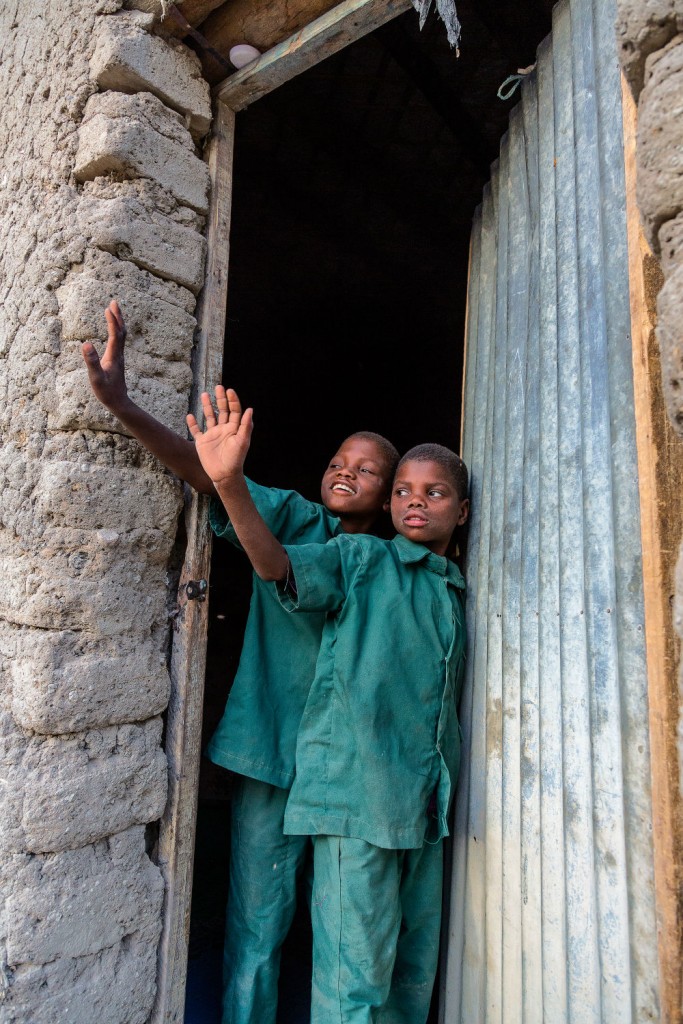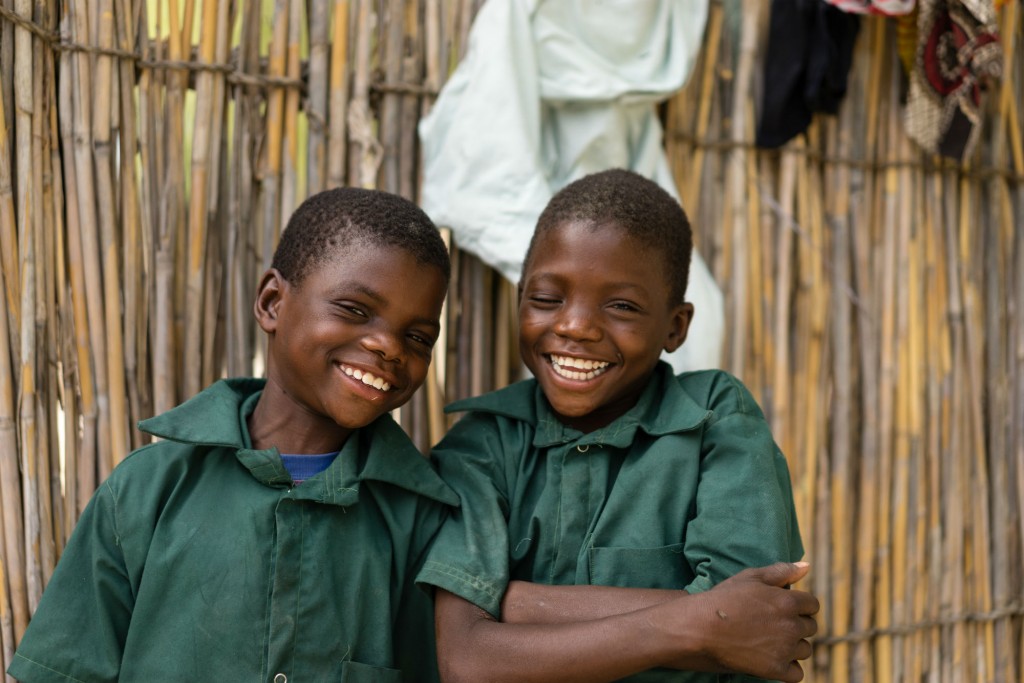Brothers and friends, breaking free from conflict
2016-04-11
© UNICEF Chad/2016/Esiebo - Bokoï, 8, and Babouï Saleh, 10, are others and best friends. These real-life heroes escaped Boko Haram attack on their village where their father got killed.
By Badre Bahaji
11 April 2016
Recently, I learned a saying in the Kanembu language spoken in the Lake Chad area: “Gomay waya dounadoum do wadji,” which means “the struggle you are in today will be your strength of tomorrow.” I feel that this resonates with the story of the many children affected by the conflict in the Lake Chad region.
Babouï, 10, and Bokoï, 8, live in Bagasola in the Lake region of Chad. They are so close that when I first met them, I thought they were twins, but I was wrong. They are others, and friends before anything else. Wearing the same green school uniform that they are so proud of, they really look alike.
“People always think we are twins but I am older” Babouï says, bluntly. Bokoï is sitting behind him, looking shy: “yes, I am younger but in school we are in the same class. I know how to count in French: 1, 2, 3, 4, 5, 6, 9, 8, 7.” He mixes up the numbers, and his other starts laughing. Bokoï starts to sulk in the corner but his big other quickly adds, as if to cheer up his mood: “In school, sometimes we play football and we fight, but if someone is annoying my other, I am always there to defend him.”
The two almost-twins lived with their father in a village named Boularagi along Lake Chad. Their mother is now in Nigeria, but they have not had any news from her in a while. The boys used to spend their days farming and chasing animals, preventing them from destroying their crops. I ask them what kind of animals they were chasing. Bokoï answers this time: “All kind of birds, goats, cows, even monkeys. Once, we were sleeping at night and I heard a hippo. I woke up my other but he didn’t believe me. The next morning, we saw the footprints of the hippo very close to our house.”
For them, the hippo was a warning for an upcoming danger. Just a few months later, their village was attacked by Boko Haram and the two boys lost their father.

© UNICEF Chad/2016/EsieboBokoï and Babouï Saleh now live with their relatives in Bagasola, in the Lake region of Chad.
Babouï, the big other, explains: “We were together in the house, sleeping. Three men came to knock at our door asking where our father was. They wore pants with many pockets and black turbans. I told them he was not there but they forced the door, grabbed him and killed him. We tried to run but they caught us.”
Hearing about all the hardships they have gone through was not easy. He continues: “They told us that we will fight with them. I was sure they were going to kill us if we tried to escape. At some point, they were not watching us, so we decided to crawl through the grass. It was harvest season, so it was high and we hid ourselves.”

© UNICEF Chad/2016/Bahaji Bokoï and Babouï Saleh are real-life heroes who escaped Boko Haram-related violence that has uprooted nearly 1.3 million children across North-East Nigeria, Chad, Niger and Cameroon.
The others spent two days walking through the bush, hungry, thirsty and exhausted. After a few days, a man with a motorbike found them and took them to Kafia IDP camp near Bagasola, in Chad, where most of the people from their village were rushing to get to since the attack. After spending a few days in the site, they were reunited with their uncle in Bagasola, thanks to the work of UNICEF and Social Welfare Regional Delegation. UNICEF also supported their school enrolment and helped the host family to accommodate the two others.
I asked them what they want to do in the future. Babouï, the protective other told me “I want to be a doctor. If there is war again, I’ll help my family.” Bokoï stared at me glumly and said, “I want to be a soldier. If there is another war, I will fight to avenge our father.”
Before leaving, I try to lighten the atmosphere and played with the two boys. We took pictures of each other, I showed them how to focus, shoot and use filters. We had fun with Talking Tom, a mobile app where a cat repeats everything you say with a funny voice, and they could not stop laughing. The last thing I told them in Kanembu was “gomay waya dounadoum do wadji.” And they laughed again.
Badre Bahaji is a Communication Officer with UNICEF Chad in N’Djamena.









